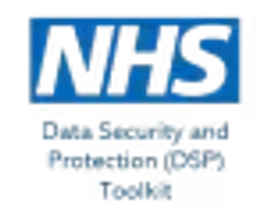Regulated and compliant with...


Appointments
30m
Lives covered
Regulated and compliant with...


Privacy notice | Cookie policy
© 2026 HealthHero Solutions Ltd., All rights reserved. Registered at 10 Upper Berkeley Street, London, W1H 7PE.
Many adults and parents of children with ADHD explore options beyond medication, seeking holistic and empowering ways to manage symptoms. This comprehensive guide offers extensive, evidence-based strategies and practical advice on effectively managing ADHD without medication.
Choosing non-pharmacological approaches can stem from personal values, concerns about medication side effects, or a preference for natural methods. For some, medication might not be a viable option due to health reasons or personal beliefs. Additionally, many individuals have successfully combined lifestyle changes, therapeutic practices and targeted coaching, resulting in significant, long-term improvements in their daily lives.
“Choosing a natural approach transformed my relationship with my ADHD, I felt empowered rather than controlled by it.” - Sophie.
Cognitive Behavioural Therapy (CBT)
Cognitive Behavioural Therapy helps to address negative thought patterns common among people with ADHD.
This therapy provides practical tools to:
Regular CBT sessions with a trained therapist can significantly enhance daily functioning and overall quality of life.
Acceptance and Commitment Therapy (ACT)
ACT encourages accepting your ADHD traits without judgment while committing to actions aligned with your personal values. This approach reduces self-criticism and encourages greater resilience, motivation and emotional stability. Through ACT, individuals learn to embrace their unique cognitive differences positively.
Dialectical Behavioural Therapy (DBT)
DBT builds essential skills in emotional regulation, distress tolerance and interpersonal effectiveness. These skills are particularly beneficial for managing intense emotions, impulsivity and relationship difficulties commonly experienced by those with ADHD.
ADHD coaching provides tailored guidance to help you manage everyday tasks and long-term goals more effectively. Coaches specialise in:
Sessions can be one-on-one or group-based, depending on your preferences and needs. ADHD coaches often collaborate with clinics like us at HealthHero, offering structured support alongside therapeutic interventions.
“ADHD coaching gave me the tools and accountability I needed to succeed at work and at home.” - Daniel
Nutrition significantly impacts ADHD symptoms. Effective dietary strategies include:
Omnivorous sample meal plan:
Vegetarian sample meal plan:
Vegan sample meal plan:
Consider these beneficial supplements to manage ADHD symptoms:
* Always consult healthcare providers before starting supplements.
Good sleep hygiene significantly reduces ADHD symptoms and improves daily function:
Regular aerobic activities naturally increase dopamine, enhancing mood, focus, and energy:
Daily practices significantly improve attention and emotional control:
Natural ADHD management requires consistency:
Myth: Natural methods aren't as effective as medication.
Fact: Lifestyle strategies can match medication effectiveness for many individuals.
Myth: Managing ADHD naturally is overly complex.
Fact: Many natural methods can integrate into daily routines.
Myth: Natural management means never using medication.
Fact: Natural methods and medication can effectively complement each other.
Myth: Diet changes have minimal impact.
Fact: Nutrition significantly influences brain function and symptom control.
Managing ADHD without medication can be empowering. With consistent therapeutic support, coaching, mindful practices and lifestyle changes, succeeding naturally becomes achievable.
Consistency, patience and tailored support from services like HealthHero are key to long-term success, improved self-awareness, resilience and overall well-being.
How quickly will I notice improvements?
Typically within a few weeks; substantial benefits develop with consistent long-term practice.
Can natural strategies complement medication?
Yes, combining approaches can be highly effective.
Are results from natural strategies sustainable?
Absolutely. These methods offer lifelong management skills.
What if my child is a picky eater?
Incorporate hidden nutritious ingredients into favourite meals or smoothies.
Can HealthHero assist with coaching and therapies?
Yes, HealthHero offers comprehensive ADHD coaching and therapeutic support tailored to individual needs.